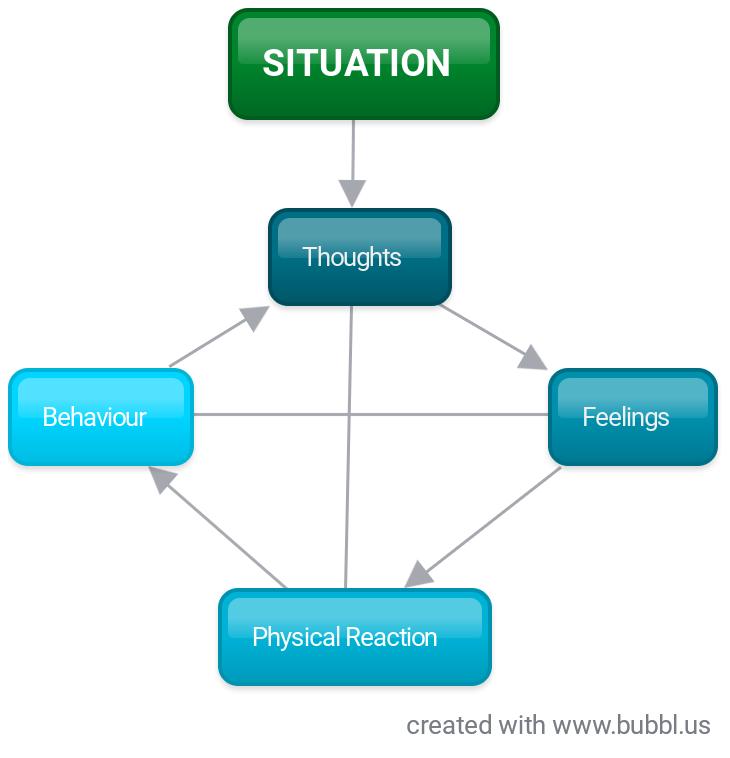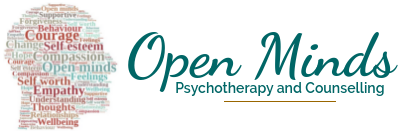How does CBT work?
Cognitive behavior therapy (CBT) is a talking therapy. In contrast to other forms of psychotherapy, CBT is usually more focused on the present, more limited in duration, and more problem-solving oriented.
It aims to take, what seems to be, an overwhelming problem and break it down into smaller, more manageable parts. It is based around the premise that the content and quality of our thoughts affect how we feel and how we behave.
In CBT sessions the therapist and client work together to identify, challenge and adapt unhelpful patterns in thinking and behavior.
The various techniques and strategies utilized in the session can be transferred to help with different life challenges.
The hope is that once the client is equipped with new skills, they will learn how to use them in their daily lives to cope with stresses and events. They will in effect, be their own therapist.

This video, from Mental Health charity MIND, introduces the concept of Cognitive Behavioural Therapy, and explains what to typically expect from the treatment.
How is CBT delivered?
CBT with Open Minds is delivered in individual sessions with a therapist. CBT is mainly concerned with how you think and act now, instead of looking at and getting help with difficulties in your past.
You and your therapist will discuss your specific difficulties and set goals for you to achieve. CBT is not a quick fix. It involves practice during and between sessions. Your therapist will help you decide what difficulties you want to work on in order to help you improve your situation. Your therapist will also be able to advise you on how to continue using CBT techniques in your daily life after your treatment ends.
What can CBT be used for?
CBT can be beneficial in overcoming:
• Depression/low mood
• Anxiety
• Post-traumatic stress disorder (PTSD)
• Panic disorder
• Phobias
• Obsessive-compulsive disorder (OCD)
• Insomnia
• Anger management
• Addiction
• Chronic pain
• Low self-esteem
• Stress
• Bereavement
• Assertiveness
• Relationship issues
How long is the treatment?
Often this will be between 6 and 20 sessions. This will be mutually agreed and reviewed on an ongoing basis, with no contractual commitment to complete the suggested number of sessions. Sessions last for 50 minutes.
